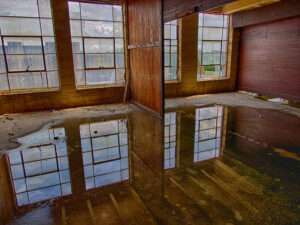 Alice Munro can cover a character’s lifetime within the confines of a short story. In Barkskins, Annie Proulx, covers the span of dozens of characters’ lives in a sprawling 700+ page novel that begins in 1693 and ends in 2013. In terms of characters, it reminds me of George R. R. Martin’s series A Song of Ice and Fire and while there are no dragons, there are a large number of cruel deaths in store for the characters in Barkskins.
Alice Munro can cover a character’s lifetime within the confines of a short story. In Barkskins, Annie Proulx, covers the span of dozens of characters’ lives in a sprawling 700+ page novel that begins in 1693 and ends in 2013. In terms of characters, it reminds me of George R. R. Martin’s series A Song of Ice and Fire and while there are no dragons, there are a large number of cruel deaths in store for the characters in Barkskins.
At first I felt sad when major characters died. I’d spent 70 pages with them and then tragedy struck. Halfway through the novel as one generation’s death gave way to the next generation being the center of the narrative, I became hardened to the characters’ passing. Then, it almost became laughable. No character could escape the cold destruction of Proulx’s writing. It started to remind of me the Medieval Death Bot on Twitter.
Barkskins is a struggle between life and death against a background of domination. The novel follows two families. Both men are French and start out life in New France (Canada) as indentured servants to a manipulative asshole named Trépagny. One man, Duquet, runs away into the woods and escapes his indentured servitude. The other, Sel, is kept past his contract and forced into a marriage with Trépagny’s Native American mistress, who is a Mi’kmaq named, Mari. The two characters are tasked by Trépagny to clear forest for his farm and homestead. Their senses are overwhelmed by the immensity of the forest.
The sodden leaf mold gave way to pine duff. The air was intensely aromatic. Fallen needles muted their passage, the interlaced branches absorbed their panting breaths. Here grew hugeous trees of a size not seen in the old country for hundreds of years, evergreens taller than cathedrals, cloud-piercing spruce and hemlock. The monstrous deciduous trees stood distant from each other, but overhead their leaf-choked branches merged into a false sky, dark and savage.
Duquet has no morals. He has an eye for making money and pounces on every opportunity. Ripping off partners and ingratiating himself to those with money is all part of his code. He forms a logging business and the novel chugs along documenting the destruction of forestland.
Sel’s descendants are all part Mi’kmaq. We see the reverse side of what Duquet and his ilk have done to the native people and the land. Life is a struggle against the whiteman. They lose lands. The characters lose their identities. Who are they? Part white, part Mi’kmaq? Their way of life is stripped from them and the Christian beliefs of the colonists are filled with hypocrisy, at least to modern eyes.
What I enjoyed about Barkskins was learning more about Canadian history and how people like Duquet navigated both the Seven Years’ War and the Revolutionary War. Duquet changes his name to an English-sounding, Duke, and tries to avoid taking any side. Instead, his focus is always on business and profits. As history proceeds, we follow characters from Boston to London and to Auckland, New Zealand. As deforestation continues, the work shifts ever westward to Michigan and the mountains. Proulx describes virgin forest in a way that makes the reader ache. We watch as Detroit builds up and then cedes importance to Chicago.
The Dukes take. They make false promises and then take more. Toward the end of the novel we see one Duke family member rape his brother’s wife in this awful escalation of taking. They have raped the land and now literally have raped each other.
In contrast, the Sels get taken from. Opportunities arise and they are screwed by people like the Dukes, because they are not white. White characters won’t see them as equal, will believe them to be lying. They are murdered by white people taking their lands and some are taken against their will and forced to work. We see the ugliness of the reservation schools using and abusing First Nation children.
And in all of this, logging progresses. Trees are cut. Soil erodes. Habitats are destroyed. Human beings destroy the landscape for more and more raw materials. The question Proulx raises is where does it end?
By the end of the novel, the Duke family is busy logging the rainforest and selling out to a giant corporation and the Sels are involved with reforestation and conservation. There are some characters on the Duke side who were interested in these things, but again, the lure of wealth overrode them. So, where does it end? Biodiversity decreases every year. Temperatures rise. Sea levels rise. Where does it end? Proulx doesn’t answer this question. She leaves it for the reader. We can be stewards of the land or we can continue to consume.



